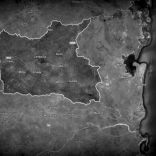Weather Alert: Strong winds for southern Mozambique
Heatwave forecast across north-central and southern Mozambique through Feb. 16

in file CoM
- Heatwave forecast across north-central and southern Mozambique through Feb. 16.
- Localized transport and utility disruptions possible.
Forecast models indicate that high-temperatures will persist across north-central and southern parts of Mozambique through at least Feb. 16. Mozambique’s National Institute of Meteorology (INAM) has issued orange heat warnings across Gaza, Imhambane, Maputo, Tete, and Zambezia provinces. Maximum temperatures of 37-41 C (99-106 F) are expected across the affected areas.
The extended period of very high temperatures and dry conditions may increase the potential for wildfires throughout the region. The high temperatures may result in drought conditions in the country. Authorities may implement water rationing, restricting water supply when necessary; they may also prohibit the use of potable water to irrigate green spaces or limit water withdrawal from wells, springs, or waterways.
Heatwaves pose a health threat to vulnerable groups, such as the elderly, children, pregnant women, and those with respiratory illnesses, due to the increased possibility of heat stroke or heat exhaustion during prolonged exposure to high temperatures. These risks could also extend to relatively healthy individuals during significant heatwave events. In addition to significantly impacting athletes and those who work outdoors, high temperatures can cause problems for people using mass transit. Some passengers may require hospitalization for dehydration due to the lack of air conditioning and cramped vehicles during rush hour.
Overheated vehicles could prompt traffic disruptions in urban areas where congestion is already a problem. Commercial trucking disruptions might occur, as very high temperatures put more stress on vehicles and make tire blowouts more common. Major flight disruptions are unlikely at regional airports, but general aviation disruptions are possible, and some airfreight carriers could reduce cargo loads. High temperatures could lead to an increased demand for electricity, which might trigger localized brownouts or blackouts, exacerbating hazardous conditions when air conditioning is no longer possible.













Leave a Reply
Be the First to Comment!
You must be logged in to post a comment.
You must be logged in to post a comment.